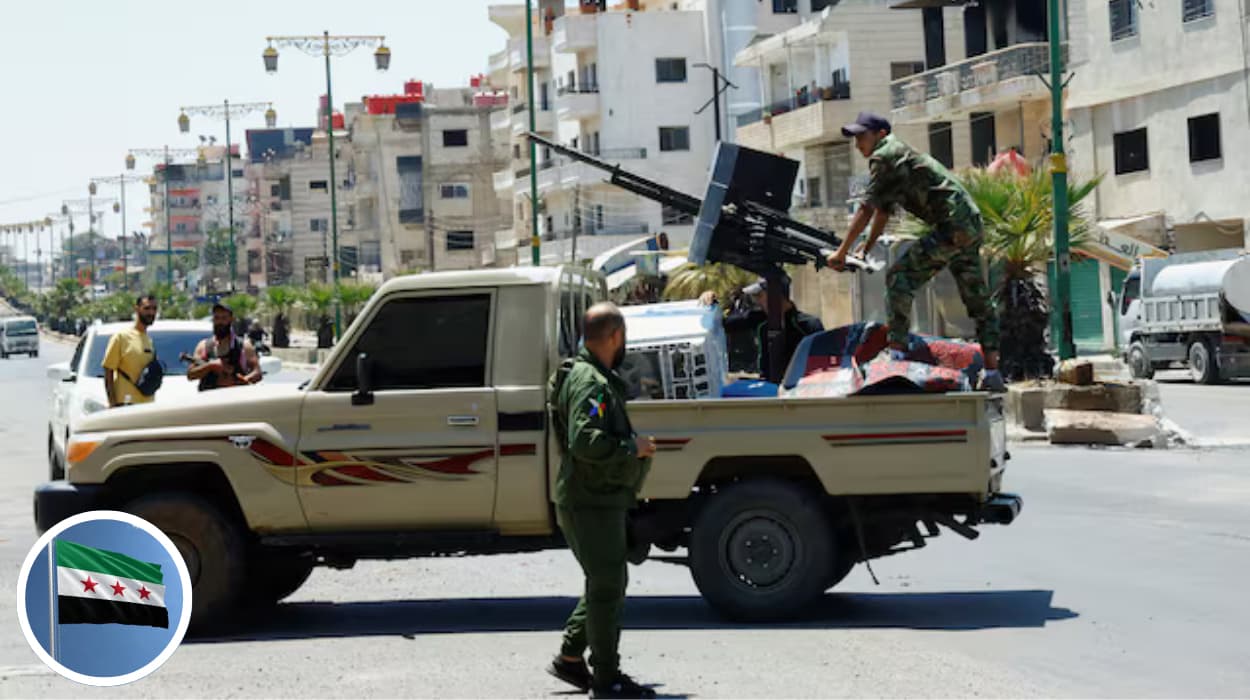Summary
- Syria, the US, and France held frank talks focused on Syria’s political transition.
- All parties emphasized the importance of Syria’s sovereignty and territorial integrity.
- Discussions stressed adherence to UN Security Council resolutions on Syria.
- The US and France reaffirmed support for the 2012 Geneva Communiqué framework.
- Syrian officials highlighted rejecting foreign interference in Syria’s affairs.
- The talks are part of ongoing diplomatic efforts to end the Syrian conflict.
- Significant challenges remain, including violence and regional complexities.
- Continued diplomatic engagement is planned to support Syria’s political transition.
The recent talks between Syria, the United States, and France represent a significant diplomatic milestone aimed at reviving the stalled political transition process in Syria. With a shared emphasis on Syria’s sovereignty and the necessity to uphold UN resolutions, the parties engaged in frank dialogue to advance peace efforts. While there is cautious optimism about fostering political reforms within the Geneva framework, the path ahead remains fraught with challenges, including ongoing violence, regional geopolitical tensions, and deep-seated mistrust. Nevertheless, the commitment to continued diplomatic engagement signals an important step towards searching for a sustainable resolution to the decade-long Syrian crisis.
What Were the Outcomes of the Syria, US, and France Talks?
As reported by the United Nations and various diplomatic sources, Syria, the United States, and France convened a meeting described as “frank” and constructive aimed at supporting the political transition in Syria. The talks underscored a shared, though cautiously articulated, commitment to the success of Syria’s transition, focusing on ending years of violent conflict and moving towards a sustainable political solution consistent with UN resolutions.
The parties reiterated the necessity to respect Syria’s sovereignty and territorial integrity. Syrian officials highlighted rejecting external interference and emphasized Syria’s independence in determining its future. Conversely, the US and France emphasized supporting the Geneva framework, which calls for a Syrian-led political process, including the drafting of a new constitution and elections.
Why Is This Meeting Important for Syria’s Political Future?
The Syrian conflict, now more than a decade old by 2025, remains one of the most complex and devastating international crises, involving multiple foreign actors and deep humanitarian consequences. The meeting between Syria, the US, and France is a critical step in multilateral efforts to push forward the political transition that has stalled repeatedly.
The discussions aimed to bridge gaps between Syria’s government and Western powers on how to achieve peace and stability. By urging the political transition’s success within the framework of relevant UN Security Council resolutions and the Geneva Communiqué, the talks sought to reinforce diplomatic pathways over military solutions.
How Did Each Party View the Political Transition?
According to UN information and diplomatic sources, the Syrian government delegation expressed firm positions on sovereignty and concerns about foreign intervention. They argued any political process must respect Syria’s independence without external imposition.
Meanwhile, representatives from the US and France articulated support for a transition process that includes inclusive political dialogue, constitutional reform, and democratic elections to establish a government reflective of Syrian people’s will. They stressed that humanitarian assistance and stabilization efforts should accompany political progress to ensure lasting peace.
What Is the Broader Context of These Talks?
These talks come amid ongoing diplomatic efforts led by the UN and international stakeholders to resolve the Syrian crisis. The war has resulted in over half a million deaths and massive displacement, with regional and global powers involved either militarily or diplomatically.
The US and France, two key members of the international coalition against ISIS and long-time critics of the Assad regime, continue to navigate a delicate balance between pressure on Damascus and support for political negotiations.
Syria’s insistence on sovereignty represents resistance to what they perceive as Western attempts to dictate terms, creating a complex diplomatic environment.
What Challenges Remain for Syria’s Transition?
Despite this constructive dialogue, significant challenges remain:
- Persistent violence and insecurity in parts of Syria hinder political progress.
- Deep mistrust exists between the Syrian government and Western countries.
- The role of other influential actors like Russia, Iran, and Turkey complicates consensus.
- Humanitarian needs remain critical, with millions still displaced internally and abroad.
- Implementing UN resolutions and achieving genuine political reform require sustained engagement and compromise from all parties.
The recent talks signal a willingness to engage but also reflect the long road ahead before a comprehensive settlement can be reached.
What Are the Next Steps Following These Talks?
Diplomatic sources indicate continued engagement at various levels will follow, with efforts to operationalize the political transition under UN auspices. The ongoing role of the United Nations Special Envoy for Syria will be crucial in mediating between the conflicting parties and ensuring international support.
The US and France have committed to maintaining pressure to ensure the political process progresses, while Syria’s government will likely continue to assert demands on sovereignty and foreign troop withdrawals. In sum, the talks are a positive but preliminary step in what is expected to be a protracted and complex diplomatic process.
The discussion involving Syria, the United States, and France marks a noteworthy development in international diplomacy concerning the Syrian crisis, characterized by realism and a shared urgency to prevent further deterioration. Yet, as emphasized by various analysts and diplomats, the success of Syria’s political transition will largely depend on sustained dialogue, mutual concessions, and addressing underlying regional dynamics that fuel the conflict.

